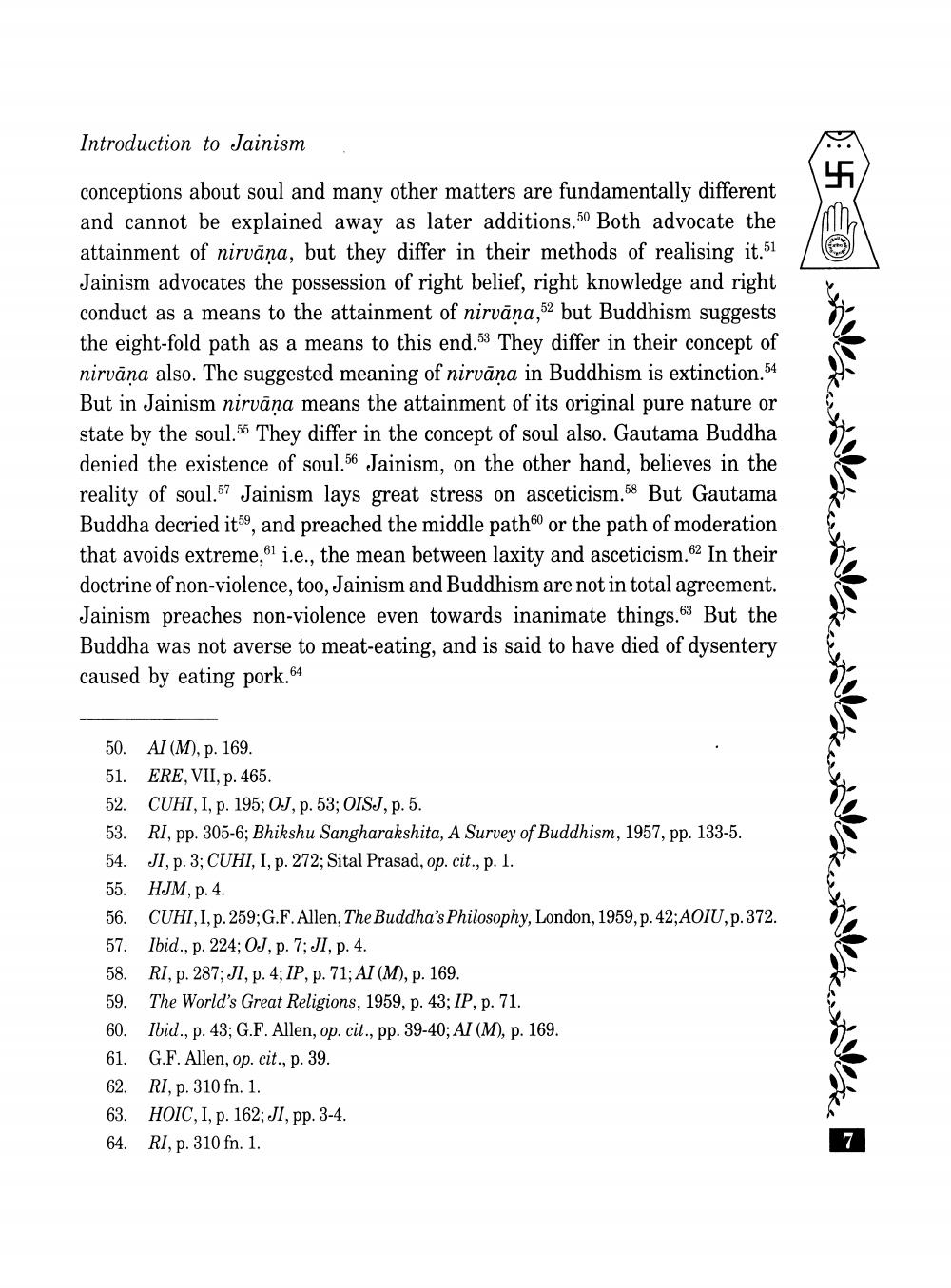________________
Introduction to Jainism
conceptions about soul and many other matters are fundamentally different and cannot be explained away as later additions.50 Both advocate the attainment of nirvāṇa, but they differ in their methods of realising it. 51 Jainism advocates the possession of right belief, right knowledge and right conduct as a means to the attainment of nirvāna,52 but Buddhism suggests the eight-fold path as a means to this end.53 They differ in their concept of nirvana also. The suggested meaning of nirvana in Buddhism is extinction.54 But in Jainism nirvana means the attainment of its original pure nature or state by the soul.55 They differ in the concept of soul also. Gautama Buddha denied the existence of soul.56 Jainism, on the other hand, believes in the reality of soul.57 Jainism lays great stress on asceticism.58 But Gautama Buddha decried it59, and preached the middle path or the path of moderation that avoids extreme, 61 i.e., the mean between laxity and asceticism.62 In their doctrine of non-violence, too, Jainism and Buddhism are not in total agreement. Jainism preaches non-violence even towards inanimate things.63 But the Buddha was not averse to meat-eating, and is said to have died of dysentery caused by eating pork. 64
50. AI (M), p. 169. 51. ERE, VII, p. 465. 52. CUHI, I, p. 195; OJ, p. 53; OISJ, p. 5. 53. RI, pp. 305-6; Bhikshu Sangharakshita, A Survey of Buddhism, 1957, pp. 133-5. 54. JI, p. 3; CUHI, I, p. 272; Sital Prasad, op. cit., p. 1. 55. HJM, p. 4. 56. CUHI, I, p. 259; G.F.Allen, The Buddha's Philosophy, London, 1959, p. 42;AOIU, p. 372. 57. Ibid., p. 224; OJ, p. 7; JI, p. 4. 58. RI, p. 287; JI, p. 4;IP, p. 71; AI (M), p. 169. 59. The World's Great Religions, 1959, p. 43; IP, p. 71. 60. Ibid., p. 43; G.F. Allen, op. cit., pp. 39-40; AI (M), p. 169. 61. G.F. Allen, op. cit., p. 39. 62. RI, p. 310 fn. 1. 63. HOIC, I, p. 162; JI, pp. 3-4. 64. RI, p. 310 fn. 1.




